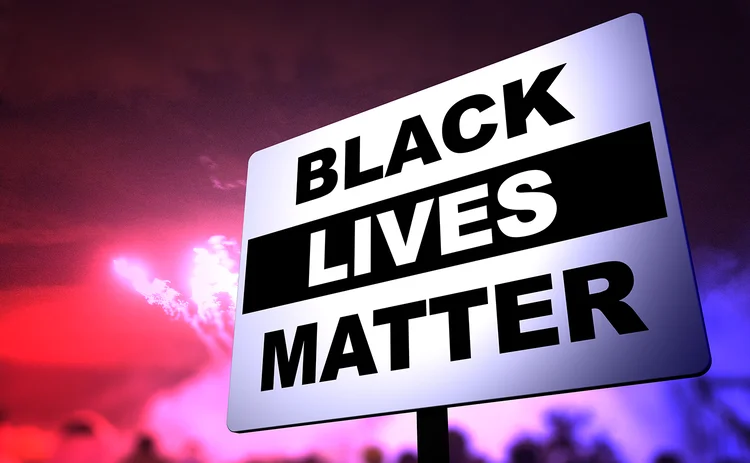
Briefing: Could Black Lives Matter's landmark purge trigger a brand rethink for some well-known insurers?

As Black Lives Matter activists target statues and landmarks baring the names of historical figures they argue held questionable views, Insurance Post content director Jonathan Swift asks whether this could have ramifications for some of the UK's most well known insurance brands.
The Black Lives Matter movement has already brought about some serious and long overdue soul searching among insurance companies with legacy pasts that included insuring slave ships.
And last week Post reported Plantation Place in EC3 London has been renamed 30 Fenchurch Street in what seems a direct response to the changing public opinion towards names and branding with slavery connotations.
To date one of the most prominent moments for the UK BLM movement was the toppling of the statue of Edward Colston, someone has long been commemorated in the City of Bristol for his philanthropy; but a person who has always also had a troubling past as a slave trader.
Elsewhere there have also been calls [admittedly with varying levels of support] to remove other landmarks that celebrate some of Britain’s most celebrated historic figures including Admiral Horatio Nelson and Sir Winston Churchill based on the arguments both held views that would now be seen as unseemly; while Italian explorer Christopher Columbus has also been targeted both here and abroad.
I mention these three people because there are prominent consumer insurance brands in the UK that carry the names Admiral, Churchill and Colombus Direct. While none specifically feature Admiral Nelson, Winston Churchill and Christopher Colombus in the signage/logos with the latter two favouring cuddly canines, and the former a gender non-specific sea farer, I wonder if BLM has made such a mark that brand association [stretched slightly in Admiral’s case] could be seen as reason enough to have a board room rethink?
Does the idea any might even mull a rebrand seem like political correctness gone crazy? Or does the use of such names normalise bad behaviours of the past?
But back to Colston. Like the business that inhabited the tower formerly known as Plantation Place, where the brand had nothing to be directly concerned of in terms of BLM, but which office inhabited a building that once bore the Bristol born merchants name was Hayes Parsons managing director James Woollam.
This week he told Post: “As an insurance broker in what was until last week called Colston Tower, with an office overlooking the now empty Colston plinth, the recent Black Lives Matter marches have played out in front of us and the anger from the protestors has felt very real.
“While I am wholly against the way the statue was removed, in my view it should have been taken down some time ago and was clearly offensive to many people in our community. The removal of the statue is not airbrushing history as some claim, as it will now be displayed in a museum where the right context can be provided.”
So what about the brands I mentioned at the start: Admiral, Churchill and Columbus.
Given it is a travel insurer and Columbus was an ‘explorer’ [among other things I never learned at school], this is the brand that might be deemed to have the closest ties with the person who is now a target of some BLM activists.
In was undoubtedly a logical brand choice when conceived in 1988 with resonance among holiday makers. Today though it might now look out of step. I contacted parent company Collinson Group last week to see if any type of action was likely to be taken in terms of the name - but to date it has remained unavailable for comment.
Churchill is currently associated with a cute skateboarding dog, but the brand origins very much lie in a celebration of one the key figures of Britain’s 20th century history.
As Churchill founder Martin Long explained to Post earlier this year: “We needed a strong brand too so we did some research [on Churchill] and interestingly most of the men in the focus group told us they liked it and that they used to be insured with it. Which they didn’t obviously. However, the women were a bit neutral, and thought it was a bit boring. But it had a subliminal impact as [Churchill] is part of the British psyche, and means ‘winner’, ‘leader’, ‘success’.”
One does wonder what a focus group of black, Asian and minority ethnic individuals might feedback should the brand be workshopped today. I approached Churchill owners Direct Line Group to ask whether it had concerns over the appeal of the Churchill brand among Bame people in light of recent events but the insurer declined to comment. Post does, however, understand it is one of the things DLG is presently looking at as part of the bigger BLM picture.
Admiral was established by one of Long’s early colleagues from his Churchill days, Henry Engelhardt.
A spokesman asserted that there are no links between Admiral Nelson and the brand, and that the name was chosen when launched so that it would be first in the Yellow Pages as firms were listed in alphabetical order: “Admiral has a strong commitment to diversity and inclusion across our entire business. Our logo has no historical association and is a genderless image, not a representation of any individual, while our advertising features an animated female Admiral,” they added.
I accept that and out of the three brands I have chosen to mention, it is the one that is furthest removed from the name that has stoked the ire of protesters in that it is a generic term for the most senior commander of a fleet or navy. But I am sure if a popular BBC quiz show fronted by Alexander Armstrong was to poll members of the public to name an Admiral, Nelson would be about as far from ‘Pointless’ an answer as the show as ever had. And the marketing department could not have noted the synergy of launching its new female brand ambassador at Waterloo station, London in 2016. A happy coincidence or calculated move? Only they know.
Whether the BLM statute targeting will have any bearing on anyone buying - or not buying - insurance from any of these brands today might be a stretch.
Insurance is often mentioned as grudge purchase; and while someone might have a grudge about the fact many of the historical figures mentioned above are portrayed and taught as whiter than white in schools. When it comes to price versus principles, buying motor and household cover is not a hill many would die on over BLM, with bigger battles to be fought.
Whether future generations remain as amenable to buying insurance from a company that shares the name with someone who has been described as “a mass killer” and “father of the slave trade,” however, could be a whole different story.
Only users who have a paid subscription or are part of a corporate subscription are able to print or copy content.
To access these options, along with all other subscription benefits, please contact info@postonline.co.uk or view our subscription options here: http://subscriptions.postonline.co.uk/subscribe
You are currently unable to print this content. Please contact info@postonline.co.uk to find out more.
You are currently unable to copy this content. Please contact info@postonline.co.uk to find out more.
Copyright Infopro Digital Limited. All rights reserved.
You may share this content using our article tools. Printing this content is for the sole use of the Authorised User (named subscriber), as outlined in our terms and conditions - https://www.infopro-insight.com/terms-conditions/insight-subscriptions/
If you would like to purchase additional rights please email info@postonline.co.uk
Copyright Infopro Digital Limited. All rights reserved.
You may share this content using our article tools. Copying this content is for the sole use of the Authorised User (named subscriber), as outlined in our terms and conditions - https://www.infopro-insight.com/terms-conditions/insight-subscriptions/
If you would like to purchase additional rights please email info@postonline.co.uk
Most read
- RSA ‘pragmatic’ on product review as NIG acquisition completes
- Direct Line Group confirms Milliner amid raft of leadership hires
- Wakam looking to exploit ‘unlimited UK potential’ following regulator approval








